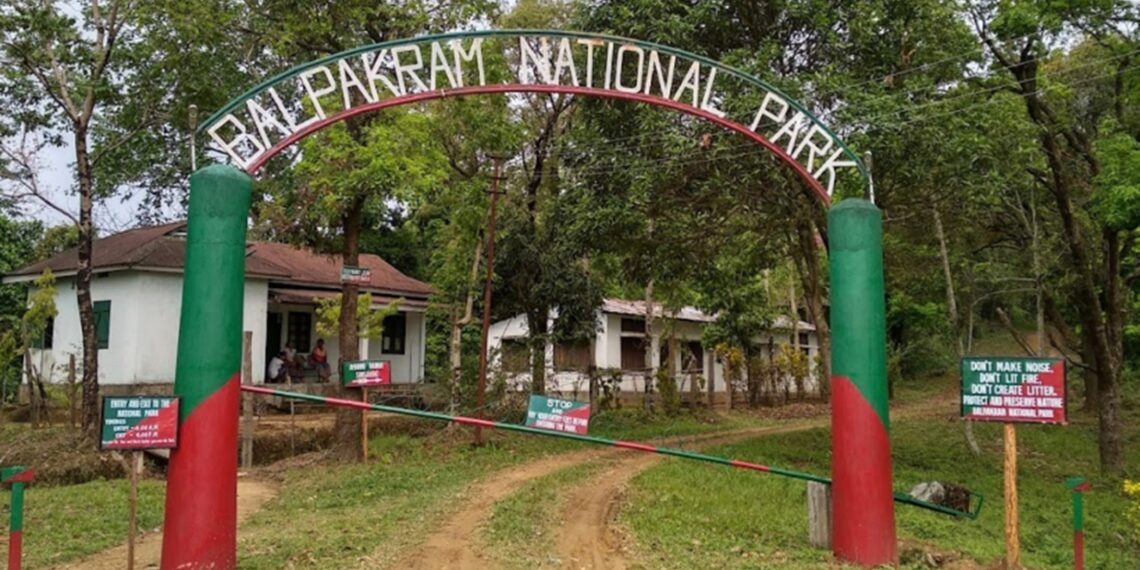SHILLONG: In a controversial move sparking environmental concerns, the Meghalaya government has approved the slicing off of 2.548 hectares of land from the ecologically sensitive Balpakram National Park (BNP) in Garo Hills.
This decision comes as part of the expansion plan for State Highway 4, stretching from Maheshkhola to Kanai.
A notification issued by Pravin Bakshi, Commissioner and Secretary of the Forest & Environment Department, cited the Wildlife (Protection) Act, 1972, granting authorisation for the diversion.
The decision was made after consultation with the Standing Committee of the National Board for Wildlife.
The permit allows for the up-gradation of a portion of State Highway-4 to a two-lane road, covering a total design length of 1.520 km within the national park under SARDP-NE Phase A.
However, the approval comes with stringent conditions aimed at mitigating environmental impact.
Among these, the user agency must ensure unhindered movement of wildlife and erect night vision signboards for crossing zones.
Rumble strips are mandated at vulnerable areas to reduce vehicle speed, and excess earth cutting must not be dumped into the Kanai River to prevent disruptions to the flow.
Moreover, labour camps are prohibited within the BNP area, with construction activities mandated to operate from outside the park boundaries.
The user agency is also tasked with implementing an animal passage plan in accordance with eco-friendly measures to mitigate the impacts of linear infrastructures on wildlife.
Balpakram National Park, situated near the tri-border of Garo Hills, Khasi Hills, and Bangladesh, holds immense cultural significance.
Declared a national park in 1986 and inaugurated by former Prime Minister Rajiv Gandhi in 1987, Balpakram is revered by the Garo community, who consider it sacred.
Folklore intertwines with its dense jungles and majestic cliffs, spawning tales of paranormal encounters, including sightings of the elusive “mandeburung” or man of the jungle.
Beyond its cultural importance, BNP is a biodiversity hotspot, housing endangered species like the wild water buffalo.
Revered as the “land of the spirits” in local traditions, the park’s preservation is crucial for both ecological balance and cultural heritage.
Yet, the decision to sacrifice a portion of its land for infrastructure development raises questions about the prioritisation of development over environmental conservation in Meghalaya’s policy landscape.















